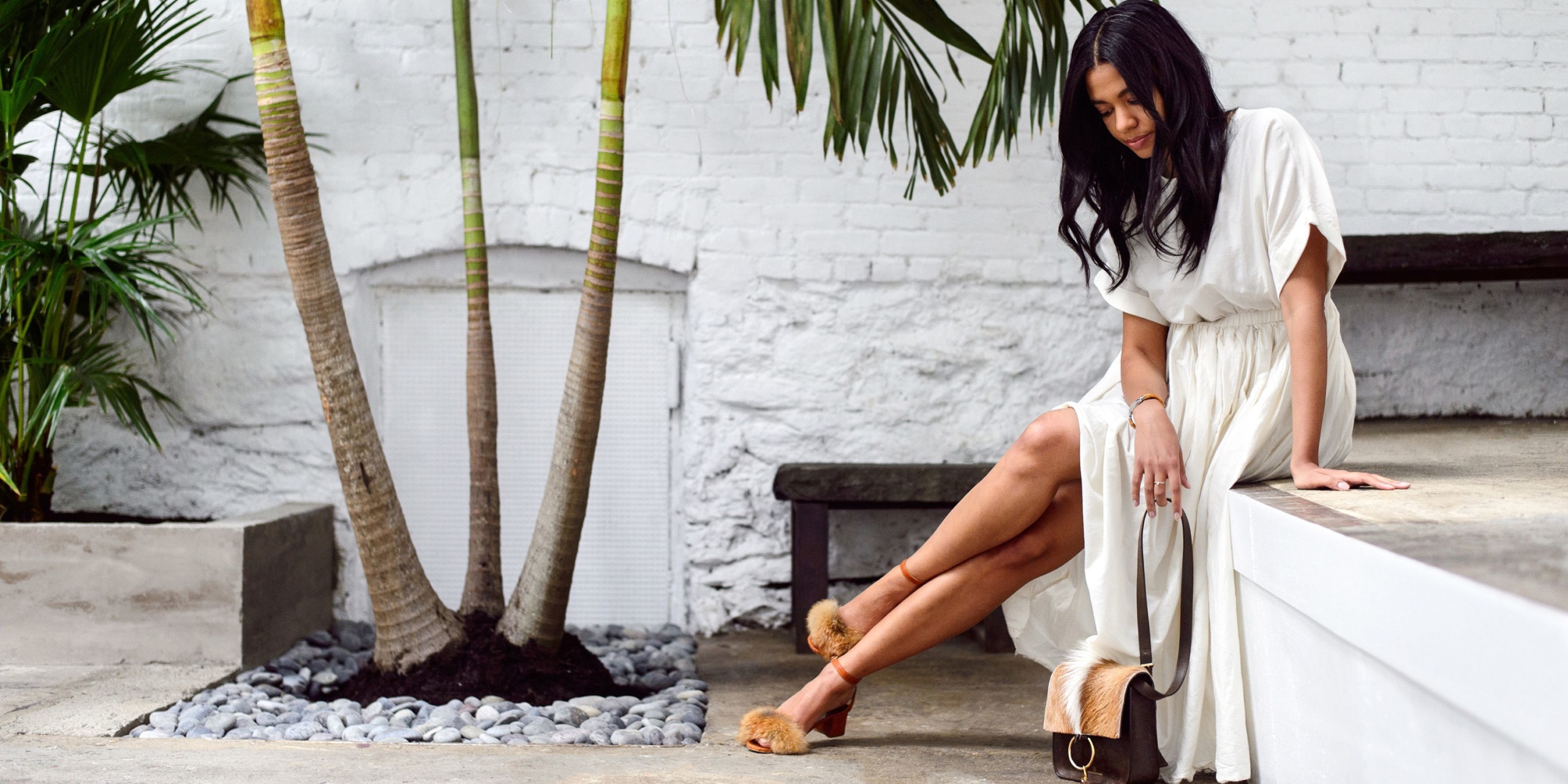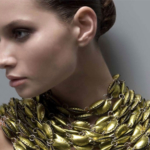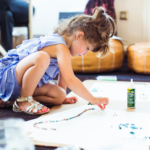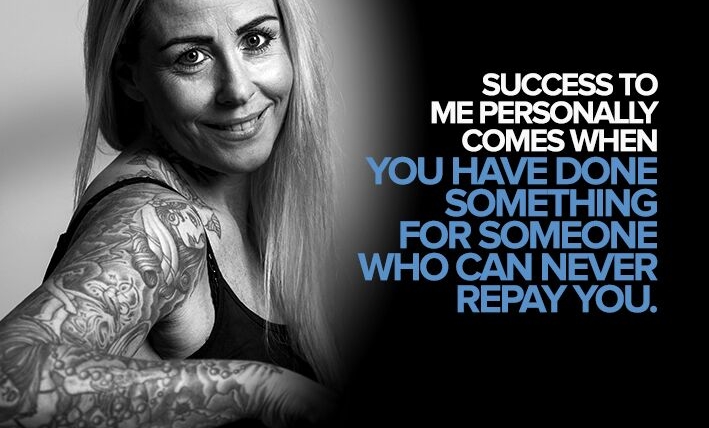
Overseeing the annual sample sale at her Greenpoint, Brooklyn, boutique, Aurora James is in her element. The minimalist space has been transformed into a kind of ad hoc exhibition of the back catalog of Brother Vellies, James’s accessories label, with glitter-flecked boots and glossy pink sandals spread out on concrete floors as a staff composed mostly of animated Gen-Z’ers unboxes more and more goodies. With shoes arranged in pastel semicircles and iridescent piles, the shop—replete with Hugo McCloud–designed columns and windows festooned with Cleo Wade poems—feels like a confectionery. James sees her handmade pieces as potential pick-me-ups, treats intended to lift the mood. “How can we use these amazing materials, vegetable dyes, and all the gifts Mother Nature gives us to make each other feel better?” she asks. “I want to see people happy again!”
Taking advantage of a mid-July sunny day, James directs our conversation outdoors to her preferred meeting place: the wooden bench beneath a linden tree and next to a bike rack outside the neighboring record store. The setting doesn’t get more millennial Brooklynite, and James looks the part of an Instagram muse. Even with a bright-blue surgical mask obscuring her features, her waist-length hair and yellow linen short set draw the eyes of passersby. The whimsy, though, hides a steely side. “I’m a fighter,” she says between sips of water. “I started Brother Vellies at a flea market and fought my way into every scenario, tooth and nail. I’m always going to fight for my company—and for people that haven’t had the same opportunities.”
Community is central to James’s world-view, from her inner circle of Black creatives to her relationship with online fans to, well, the community she’s surrounded by right here. At 36, she appears to have found her people. Throughout our conversation, she’s greeted by familiar faces: the local postal worker; a bespectacled acquaintance led down Oak Street by his twin pit bulls; the longhaired proprietors of the record store, each armed with boxes of vintage vinyl. Amid a rapidly gentrifying neighborhood, she’s cultivated a sense of small-town intimacy. When COVID hit, her first thought was “Oh, no—my little hive’s in trouble,” she says. “I’ve always thought of Brother Vellies as this community, and here we all were, watching the world collapse—it was like a movie. The last thing you’re thinking about are shoes and handbags.”
In the middle of the global pandemic, millions of us engaged in an extended Netflix break, but James’s sojourn was life-changing. From a wicker chair in her Clinton Hill brownstone, James launched an initiative set to have a lasting impact on the way fashion—and beyond— operates. Her 15 Percent Pledge calls on the world’s biggest retailers to devote shelf space to Black-owned businesses and suppliers, prioritizing the talents of underrepresented communities to level the playing field. Such an undertaking would be daunting for an entire team, but for one woman pushing herself nonstop, it required—and still requires today—a unique level of dedication. “I’ve just been on the phone talking to everyone and trying to have them do positive things,” she says.
James credits friends like former Teen Vogue editor in chief Elaine Welteroth and stylist Eric McNeal with getting her through a sense of isolation brought on by the pandemic. “My friends and I will just ride our bikes by each other’s houses,” she says. “I’ll get these texts, and suddenly it’s like I’m seven years old again—I’ll open the door and find Eric there with candy asking me how I’m doing. It makes me well up sometimes because it is this beautiful human connection.” For Welteroth, though, James is the glue that holds their group together. “We bonded as women, and as Black women, within this business to build a sisterhood based on mutual respect and admiration,” says Welteroth, who has been helping James with outreach for the Pledge project. “There is this deep loyalty and desire to see each other win.”
It’s a sensibility that James cultivates online as well, where she shares her self-care habits and culinary expertise with an audience of thousands who tune in for her morning-coffee update and stay to listen to her thoughts on love and romance. Passionate about perfumery, she mixes scented oils in her spare time, sourcing ingredients from her travels. “They say that scent is your strongest sense tied to memory,” James explains. “Over the course of the pandemic, I’ve really relied heavily on a lot of these notes to ground me, inspire me, comfort me, and even just to help give me the strength to keep going.” This winter, she’s set to release her first scent, created in small batches.
An Andrü Sisson text art scrawled across the walls of the Brother Vellies store reads, even freedom craves touch. The words feel prophetic. A serial monogamist who went from living with roommates and boyfriends to sharing space with her then-partner, stylist Browne Andrews, James recently found herself alone for the first time in a decade. “I’ve missed touch and interaction,” she says, “but I’ve been single now for a year, and I know that I wouldn’t have been able to do everything I’ve done if I were in my previous relationships. You have to ask yourself: Is it worth it? We spend so much time being bummed about partners, but my best partners have consistently been my friends.”
It’s hard to imagine the sorts of girl bosses previously held up as millennial success stories being so candid about their personal lives, but James’s radical honesty and questioning of the traditional markers of success are taking center stage just as the old archetypes are starting to feel stale. Her core concerns: racial injustice, sustainability, financial equality, and preserving artisanal practices. “We celebrate this idea of getting $100 million in venture capital, but if we think that grants us happiness or freedom, we’re in the wrong system,” says James.
While being an independent designer offers her the freedom to embark on outside projects such as the Pledge without having to answer to anyone, James’s race and gender can still place her in a box. The financial barriers are obvious—African Americans and women are less likely to be approved for business bank loans and lines of credit—but the ingrained stereotypes that persist in an industry that prides itself on acceptance are equally frustrating. “As Black women, we are celebrated for being objectified,” James says. “That’s the space fashion allows us to exist in—you get to be a Beyoncé or maybe a Serena Williams. How many times have you heard the phrase ‘millennial Oprah’? Is that the goal? Because I would just like to be the millennial me.”
Canadian on her mother’s side and Ghanaian on her father’s, James was raised in a multiracial household in Guelph, just outside Toronto. “The first time I heard the N-word, it was from my grandmother—the woman I loved most on the planet,” she says. “Understanding how people get these ideas about the world, and who they perceive as threats to their existence, was critical for me.” When she, her mother, and her stepfather moved to Ocho Rios, Jamaica, when she was seven, life on the island opened her eyes to a vastly wider and more colorful dynamic. The relocation, which occurred after her maternal grandmother visited the island and fell in love with its relaxed vibe, would help form much of James’s outlook. “My mother delved into the culture with me,” she says, “and we learned everything—from the clichés like marijuana and its origins, what it means to people, to Jamaica’s religions and history, and how it was all interconnected.”
James’s imperfect relationship with her artist mother, Randa—who is both the loving teacher who introduced her daughter to fashion and the person who forced James to stand on her own two feet when her mother moved cross-country with a new boyfriend when James was 17—has shaped her life. “I watched her lose everything—including her sense of self—while we were in Jamaica, but I also watched her rebuild,” says James of this difficult period in her mother’s life. “It’s fascinating what women are expected to—and willing to—give up when they fall in love. So often we short ourselves on our greatness because we think it’s dependent on other people’s ability to love us.”
James’s early understanding of the world came almost entirely through fashion. “Everywhere my mother and I went,” she says, “anything she put on her body had a story. She would explain why clogs originated in Holland, and the types of wood they used to make them. She’d visit Inuit communities and show me their entire tanning process, all the byproduct materials, and tell me how they used them to create those shoes.” Along the way, “I fell in love with fashion as an art form that can speak about people, time, and culture.”
That spirit is evident in the artisanal craftsmanship of Brother Vellies, which James founded in 2013 as a means of preserving centuries-old techniques. “In 2011, I started traveling across different countries in Africa, seeking out traditional artifacts still being made,” says James. “And I started getting distraught because I soon realized that so much had been wiped out.” In Africa, about 40 percent of apparel manufacturing has died out due to used-clothing imports. The experience prompted James to explore ways of uplifting communities without erasing their heritage. “When the British came to South Africa and saw the shoes they made—the veldskoene, or vellies, a rawhide design originated by the nation’s Khoisan people—they took those ideas and founded Clarks,” she says. “When I went, there were a few workshops still making them, and they were at risk, so I started working with them on new colors and shapes. Brother Vellies was born out of that.”
With workshops in South Africa, Ethiopia, Kenya, and Morocco, the brand provides a lifeline for regional handcrafts. When James won the 2015 CFDA/Vogue Fashion Fund award, it aligned with a retail sea change that saw consumers suddenly as interested in the backstories of the brands they bought as they were in their fashion. “Aurora was way ahead of the curve on that front,” says designer Brandon Maxwell, a longtime friend. “People want to know what the values are of the brand they’re spending on, and Aurora lives those. Women don’t just want the product—they want to be like her, and that is a very special combination.” The pan-Africanism of James’s vision also shines through. “[It’s] the idea that you can have this Black-owned luxury product made by indigenous Black artists on the African continent,” says Welteroth. “And to know that by buying into this brand you’re also investing in a micro-economy that is going to enable Black women to provide for their families and become economically independent—it speaks to a new idea of what luxury is.”
James’s inspiration to create the 15 Percent Pledge came in the wake of a series of personal letdowns. “I’d been focusing a lot on reflecting on my life—my relationships with friends and partners; anyone who has hurt my spirit,” she says. Our recent spate of police brutality and public-health emergencies also served as catalysts. “When I started digging into that, specifically after the killing of George Floyd, I felt this deep sense of disappointment in my soul,” James explains. “And it felt familiar because many of the disappointments I’ve experienced in the past happened because I was too nervous, too shy, or too insecure to ask for what I needed.”
Pushed to move beyond those fears, James drafted a mission statement in an hour and took her thoughts to Instagram—in part to hold herself accountable for real-world action. “I saw all these people and companies saying how they stood with me and supported Black Lives Matter,” she says. “I was reading it but not feeling it—there was an emotional disconnect. I processed it in two ways: first as a Black woman and then as a businessperson.” Then the idea hit her: By taking the percentage of Black people in America and correlating it to a target number that retailers could hit, she felt the ask was concrete enough to appeal to retailers. “A lot of people, when they’re starting movements, they’ll do focus groups and think tanks, but this was just my ask as a businesswoman—and I wanted to put it out while these retailers were busy telling me all these things that just didn’t resonate with me as a human.”
James’s post on May 29 immediately went viral and resulted in an outpouring of interest. For her industry peers, the announcement wasn’t surprising. “Aurora has always been a person who is solution-oriented,” says designer Prabal Gurung, who has been friends with James since 2015. “She never compromises on values or ethics, and she practices what she preaches in everything that she does.” So yes, designers understood—but multinational corporations were another story. “Since that day, it’s been back-to-back Zooms in 30-minute increments trying to convince these large corporations to do the right thing,” says James. “For some of them, it’s just about building out the strategy to make sure that they reach 15 percent. Others just want to ride out this situation, make a donation, and wait. It’s so much easier to do that. Some companies do not want to be accountable to Black people or feel like they’re at the mercy of Black women,” she says. “They don’t want to be in a situation where they have to answer tough questions.”“I saw all these people and companies saying how they stood with me and supported Black Lives Matter,” James says. “I was reading it but not feeling it—there was an emotional disconnect”
Not too long ago, that sentiment could be applied to the majority of the industry. Discussions about race, privilege, and power have always been fraught, but the disparity between the experiences of creators of color and their white counterparts was glaring. “To this day, I don’t have a business credit card,” James says.
For longtime activist Bethann Hardison, James’s strength lies in her ability to lead by example. “When you’re doing something that no one has done before, the only person you can look to is you,” says Hardison. “We’re all learning about Aurora as she’s trying to make sense of life during a pandemic. How do you create, how do you thrive as a businessperson with people relying on you? She’s been able to come up with solutions—not just for herself but for her entire community—and her plan is sensible, smart, and a good chess move during a moment when everyone is open to change.”
The Pledge’s future depends on the cooperation of many, but it has already yielded big wins. LVMH’s luxury beauty brand Sephora was the first to sign on, followed by West Elm. “It’s going to take a while,” James says, “but as we continue to announce companies signing up, it will put more pressure on those that haven’t.” More than merely changing what they stock, James wants retailers to examine their entire approach. “Initially it’s about shelf space, but we want people to audit all areas of their companies—their C-suite, entry-level positions, freelancers, models, marketing, collaborators. Take a look, and then figure out why there aren’t any Black voices.”
The level of confidence and commitment required to essentially take on the corporate world on your own terms is something James wishes she could have summoned in the early days of Brother Vellies. Armed with just $3,500 of her own cash and a spot at the Hester Street Fair, she had to navigate fashion alone, learning her business from the ground up—and on the fly. “I’ve had to make some incredibly tough choices, and I’ve realized that sometimes the easiest choice is the worst in the long run,” she says, referring to some spectacularly bad advice she’d fallen prey to early on. “A very influential person told me that I should shutter my website because ‘luxury doesn’t sell online.’ Now it’s the backbone of our brand. You have to learn what works for you.”





